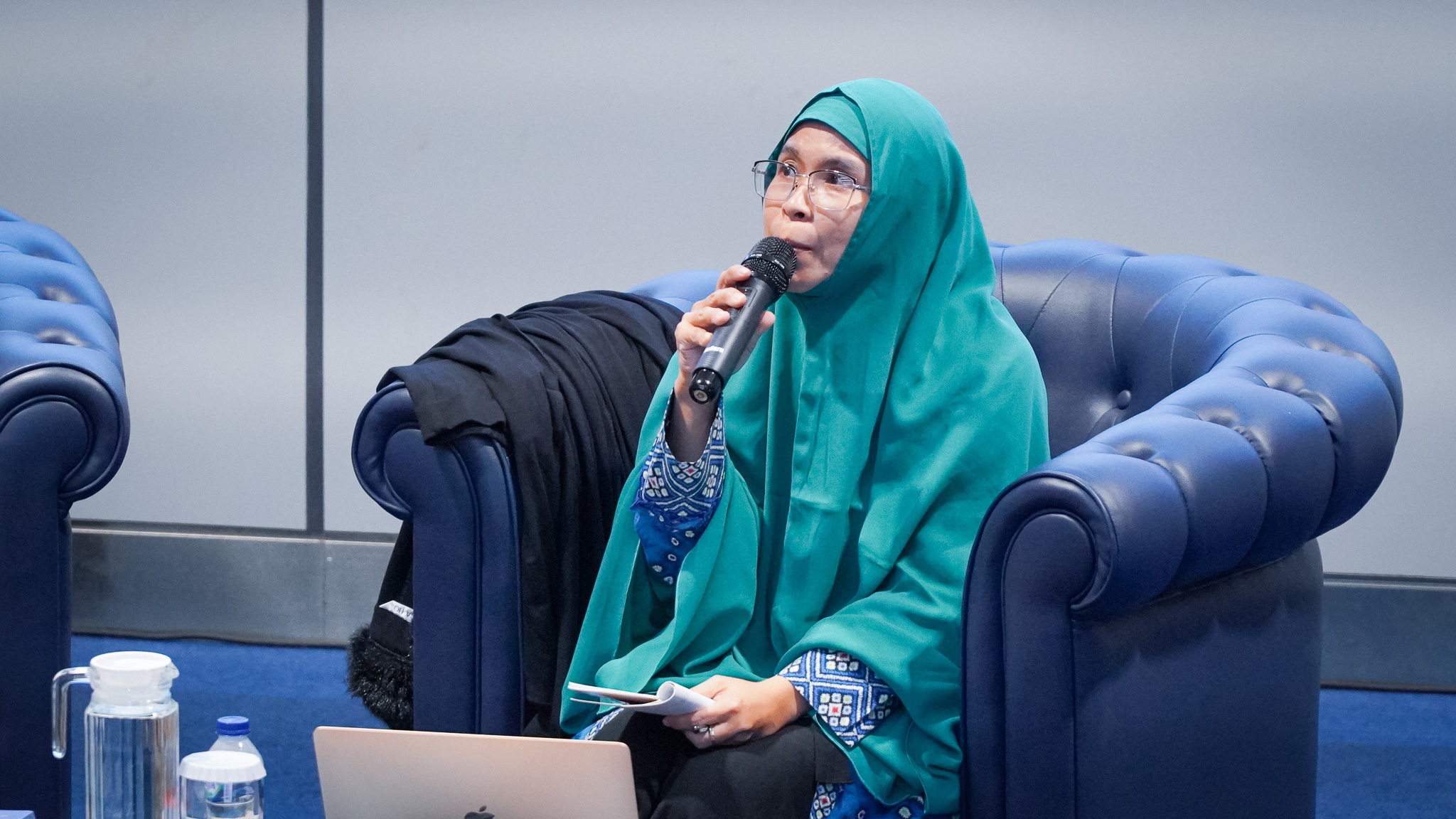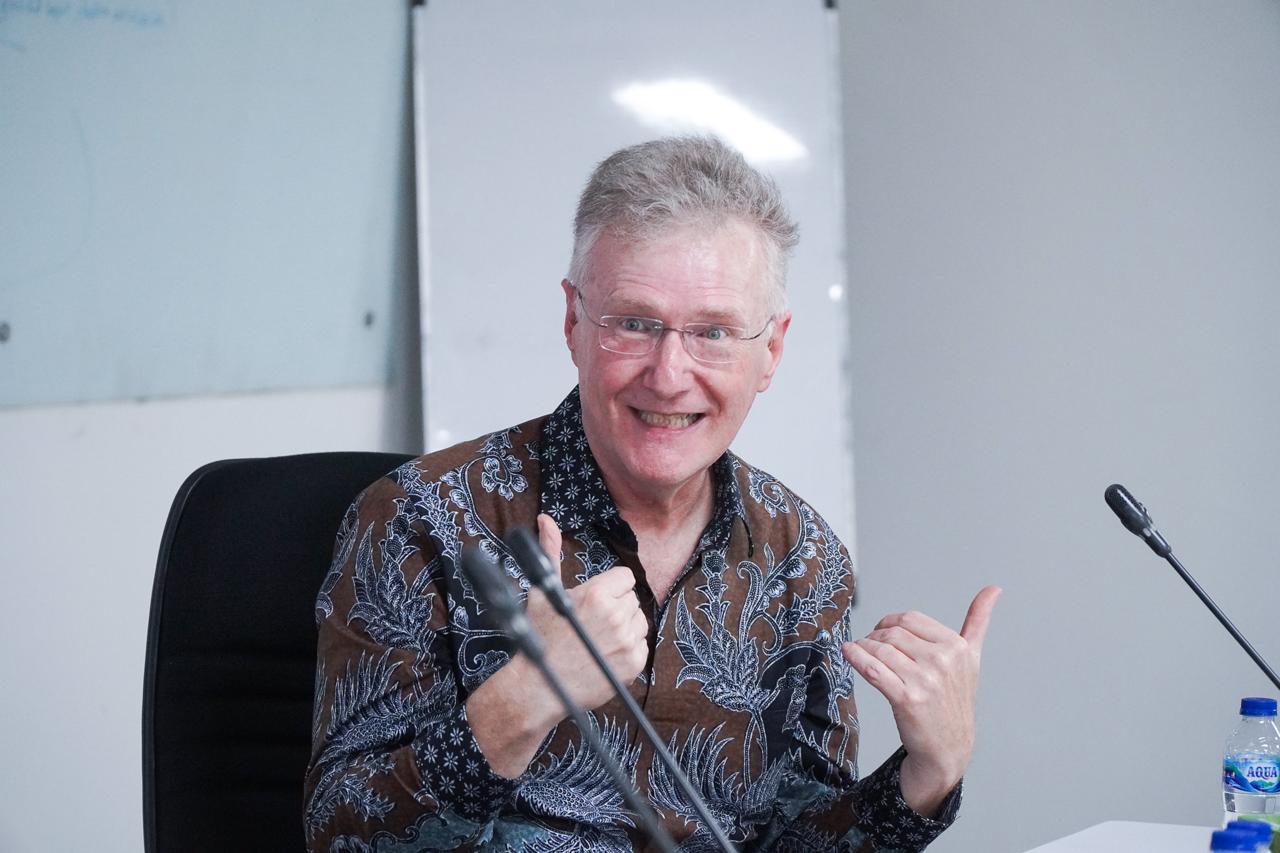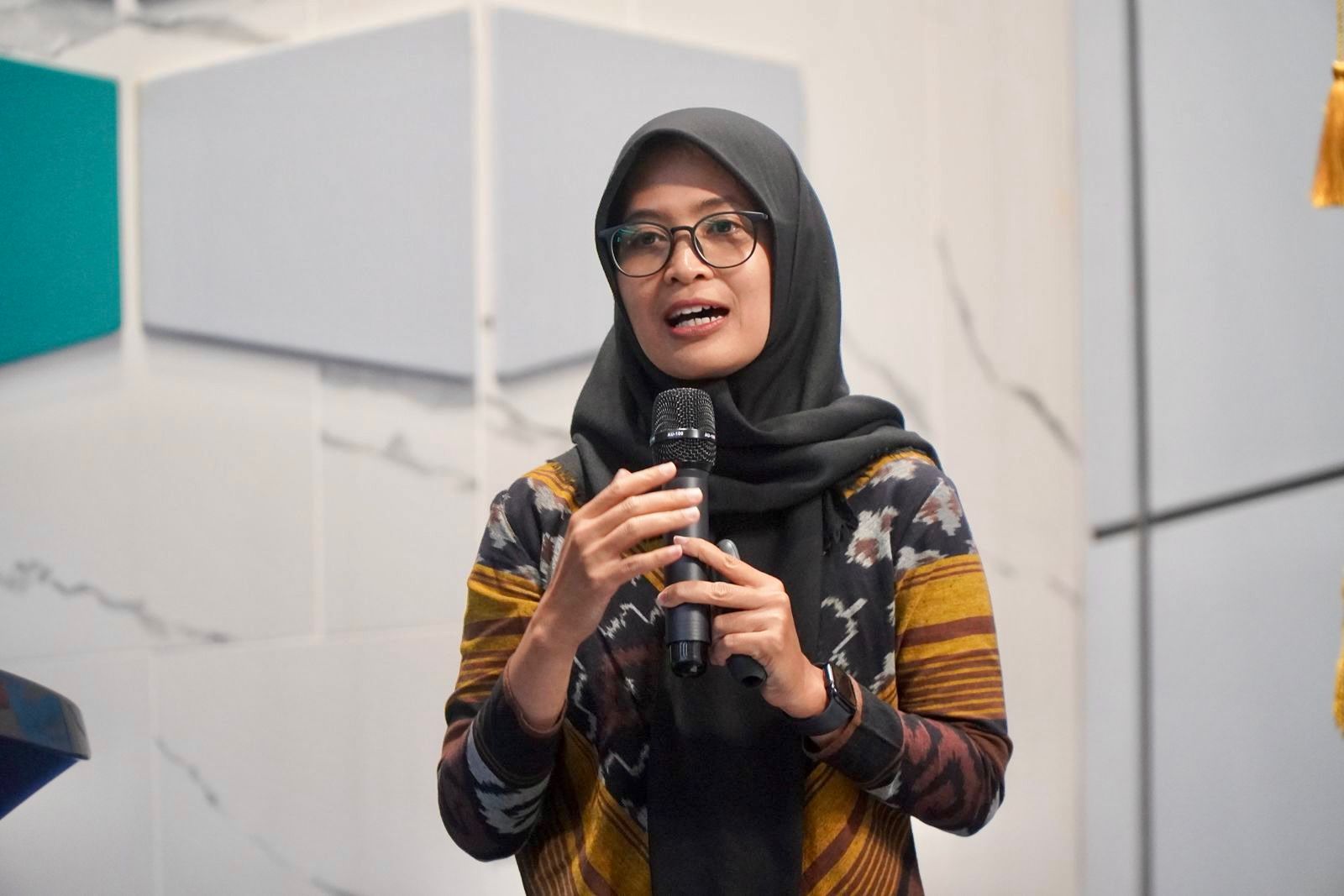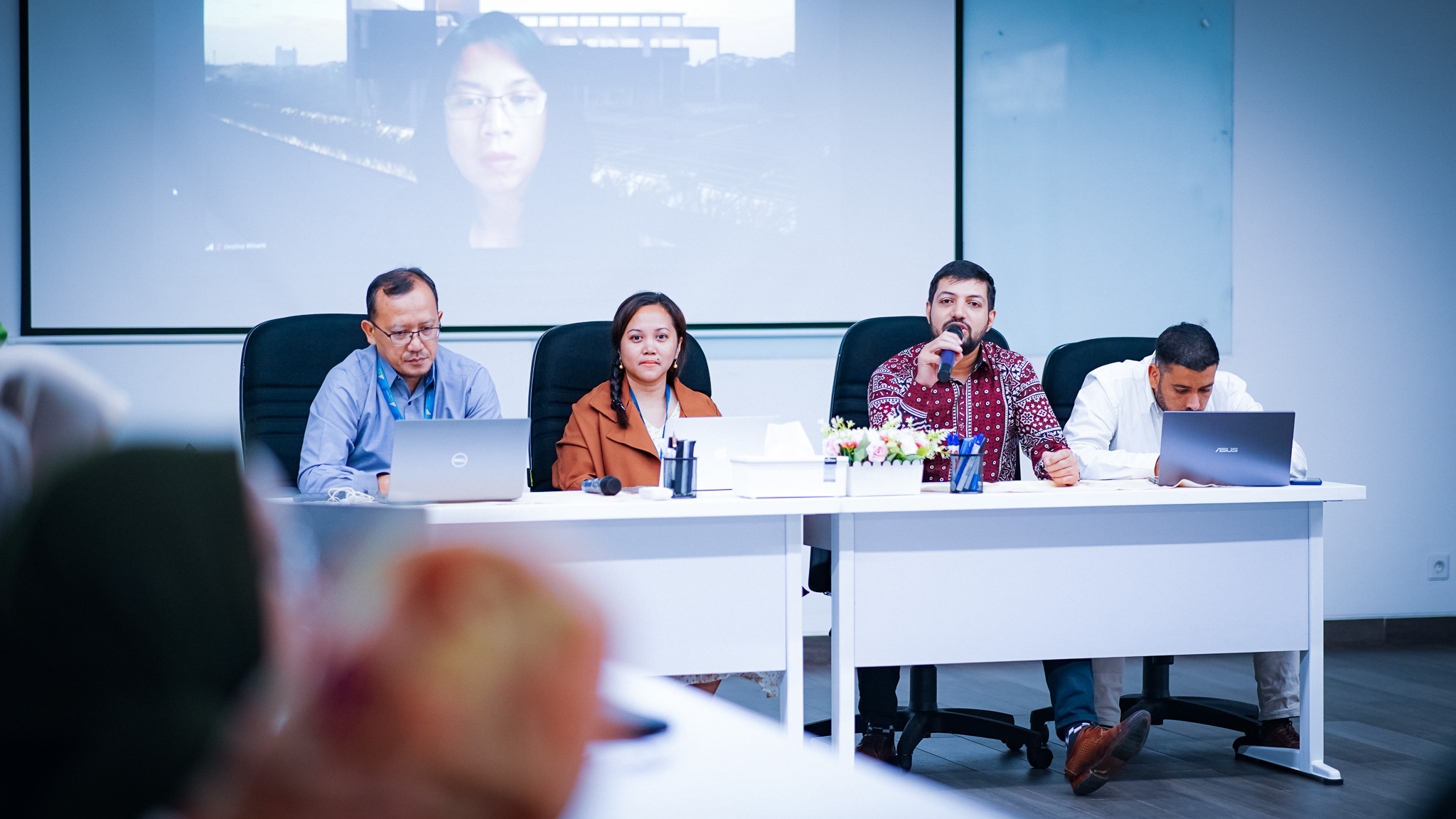Motivation Strategies for Young Language Learners: Insights from FoE’s LunchTalk
May 22, 2024Contributor: Supriyono

UIII, DEPOK – The UIII’s Faculty of Education (FoE) hosted a LunchTalk on May 21, 2024, featuring esteemed Naning Tri Wahyuni, Ph.D., a scholar in residence at the faculty and a graduate from a doctoral program in Applied Language Studies and Linguistics at the Auckland University, New Zealand.
At the event, Dr. Wahyuni presented some findings from her research project on investigating the Indonesian primary school students’ development of interest in learning English. She focused her presentation on the schools’ and parents’ involvement in motivating young English learners.
Employing a multi-case study with mixed method inquiry, the study was conducted at a bilingual school in an urban city of Indonesia, involving 48 fifth graders aged 10-11 years old, as well as four respective English teachers. Additionally, four selected students participated in the home-based study along with their parents.
The findings indicate that children with prior interest of English learning managed to maintain efforts, and determined goals, ensuring their interest growth along the learning journey. Meanwhile, children with determined academic goals with no prior interest, potentially can develop their interest as they keep their effort, giving them an opportunity to discover values on their learning, as their knowledge and skills improved.
“However, child with goals, but no prior interest and lack effort and perseverance, might not help in developing their interest since they might also lack of giving chances to their self to experience meaningful learning,” Dr. Wahyuni explained.
Hence, the findings suggest that having prior interest on English learning that is further stimulated by determined goals are essential for engagement which later enable interest to naturally grow and well established. Meanwhile, for the children who have no prior interest, determined goals can still play in engagement which also enables interest to relatively grow.
“Interest promotes motivation and productive/meaningful engagement. Thus, it is necessary to support students with lack of interest to have more connections with their learning such as practical use, values, prior knowledge, related values,” Dr. Wahyuni suggested.
In term of parents’ involvement, the findings suggested that different kinds of children need different parenting styles. The authoritative style of parenting is suitable for children who have self-driven motivation, studious and have determined goals in learning. Meanwhile, the Permissive style of parenting fits for children who have developed interest and established individual learning style. Additionally, both authoritative and permissive parenting styles can be applied for children who have not established self-responsibility/self-regulated learning and those who still highly need parents’ supervision and a lot of encouragement.
The insights from esteemed Naning Tri Wahyuni, Ph.D, sheds light on parents and teachers on how to improve the students’ interest in learning English. As an international university, UIII through its Faculty of Education is committed to support discovering innovative ways to teaching English as both second and foreign languages.
- Grit, Innovation, and Adaptation: Key Themes in FoE’s 3rd Graduate Forum for Education Future
- Student-Led Research Community Series Kick Off with Academic Publishing Session
- Advancing Institutional Governance through Risk Management Training
- A Night of Unity: International Iftar Brings Students Together in Celebration
- Vice Minister Joins Iftar with UIII International Students, Hearing Their Stories
- FisFastFest Showcases ‘TransformMe’ Spirit with Intense Quiz Competition
- Ramadan Unites Us: UIII Hosts Iftar Gathering to Strengthen Bonds
- It’s Time for Africa! UIII Aims to Expand Outreach in African Continent
- Future Innovators Gather at UIII for 1000x Challenge Mentoring & Briefing
- UIII and Al-Azhar Strengthen Ties for the Advancement of Islamic Civilization


